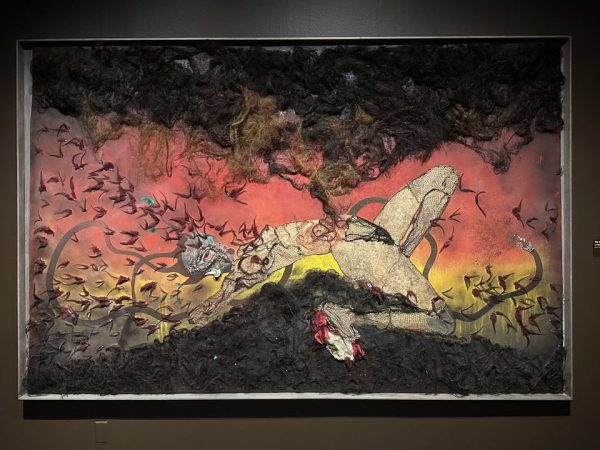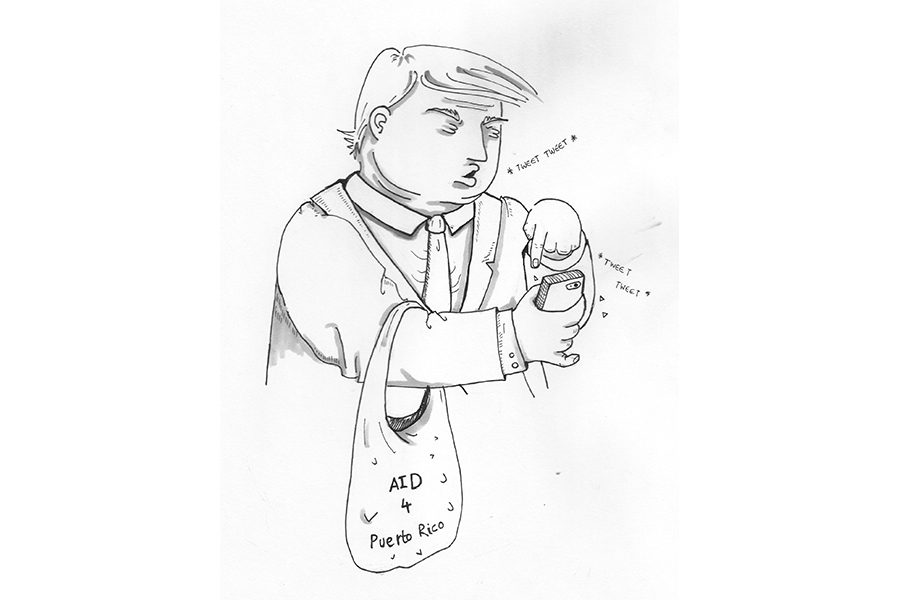U.S. must aid Puerto Rico post-Hurricane Maria
On Sept. 20, Hurricane Maria struck the Commonwealth of Puerto Rico, decimating much of the island’s infrastructure and killing 48 people. Maria was one in a string of hurricanes to affect Americans recently, including Hurricanes Harvey and Irma. While all of these storms have caused serious damage, the situation in Puerto Rico is far worse than that in the continental U.S.
This discrepancy is largely due to the federal government’s policies towards the island. The United States’s historical relationship with Puerto Rico and the inadequate response of the Trump Administration have exacerbated the damage done by Maria and make long-term recovery more difficult.
Puerto Rico became a territory at the end of the Spanish-American War, but unlike many other territories the U.S. acquired over its history, it never became a state. As a result, Puerto Rico has long existed on the periphery of American consciousness, with only 54 percent of Americans aware that those born in Puerto Rico are U.S. citizens.
Though Puerto Ricans have served in every American war since World War I and are subject to federal laws, they have no active representation in Congress and cannot vote in presidential elections. As a result of these circumstances, the voices of the 3.5 million citizens living on the island are not given a platform within the federal government that rules them, allowing for the creation and implementation of policies that do not benefit, and often harm, Puerto Ricans.
Over-regulated trade has caused the cost of living in Puerto Rico to be 13 percent higher than in urban areas in the rest of the nation, despite the low wages earned by those living there. These policies, implemented by the U.S. federal government, have long stifled Puerto Rico’s economy. They have also has led to greater poverty and poorer infrastructure while complicating the rebuilding process.
The Trump Administration’s response has only added insult to injury. The president has repeatedly shown a lack of respect Puerto Ricans, whether by mocking the Spanish pronunciation of the island’s name or by claiming that the people there “want everything done for them.”
Trump’s actions also reflect his insufficient concern for the well-being of Puerto Ricans. He has already discussed the withdrawal of military personnel and first responders from the island, while military leaders claim there are not enough troops on the island as is. Currently, less than 15 percent of the population has access to power, and some people in more remote areas must retrieve drinking water from potentially unsafe wells. These conditions greatly threaten the safety and health of Puerto Ricans.
The federal government must take immediate action to bring relief to the people of Puerto Rico. To ensure long-term success, however, it must also change its relationship with the territory. Puerto Ricans are U.S. citizens who ought not to be mocked or ignored by those on the mainland. Furthermore, they should have more of a role in shaping their own futures and rebuilding their communities, instead of being restricted by laws they have no part in creating. During dire events such as hurricanes, the government has a responsibility to aid all of its citizens, even those excluded from federal-level decision-making.
This is an opinion article and does not reflect the views of The Tulane Hullabaloo. Madeline is a sophomore at Newcomb-Tulane College. She can be reached at [email protected].
Your donation will support the student journalists of Tulane University. Your contribution will allow us to purchase equipment and cover our annual website hosting costs.


















Leave a Comment